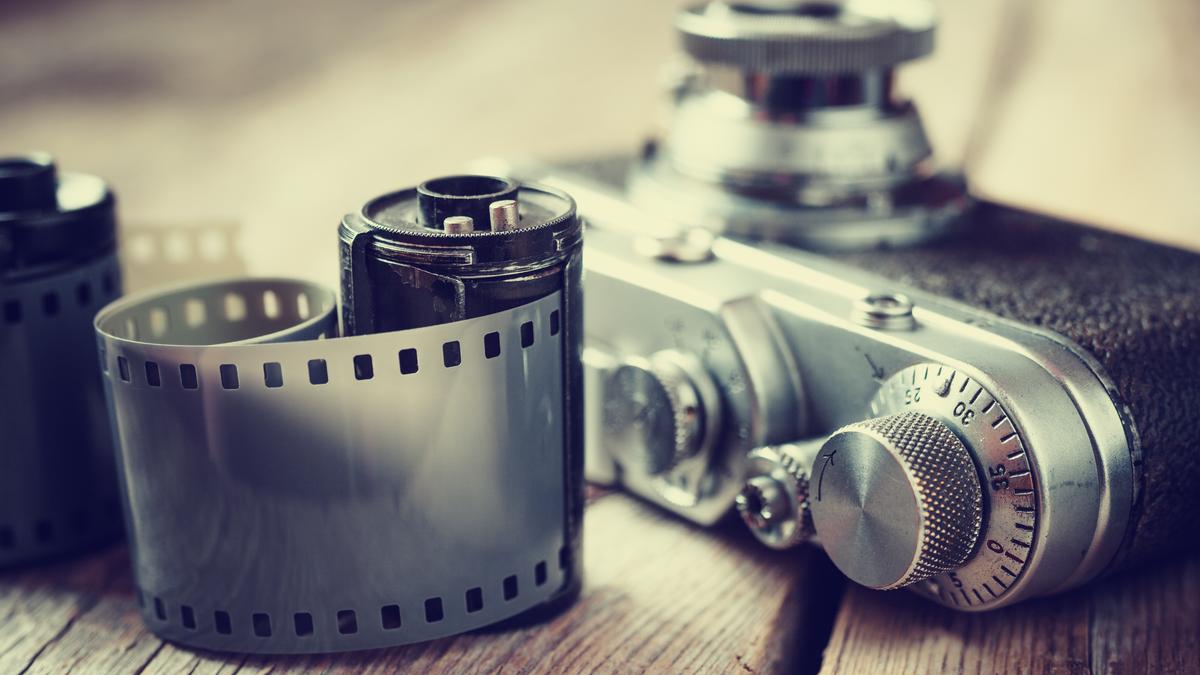
Back then, cameras were not omnipresent.
| Photo Credit: Getty Images/iStockphoto
In the early 2000s, before smartphones became appendages and every child had a “digital footprint” before it could walk, my brother and I spent our weekends climbing trees in our grandmother’s village. Our faces were tanned, knees bruised, clothes stained with tamarind pulp and ink. There are no photos of those days. Only stories.
Our grandparents had a rusted Kodak camera, carefully locked in a glass cabinet. It was used sparingly — once a year, maybe twice — on birthdays or weddings, when someone important visited. A single photograph meant standing still for what felt like forever, chin tilted unnaturally, everyone instructed not to blink. The idea of capturing candid moments was absurd. We were not meant to be the centre of attention all the time.
And yet, we remembered more. It wasn’t that our childhoods were extraordinary. On the contrary, they were made up of small, forgettable things: the smell of rain on hot stone, the sound of chalk squeaking on a blackboard, the feeling of falling asleep during a long car ride with your head against a parent’s shoulder. But because there were no phones constantly aimed at us, we looked outward. We noticed more. We remembered.
Now, I see children pausing mid-play to pose. They turn instinctively when a phone is pointed at them. Some even ask to see themselves immediately, fingers already swiping through images. The moment hasn’t even ended, but it’s already being curated. Edited. Posted. The game becomes a performance. Childhood, a timeline.
There’s nothing inherently wrong with photographs. They are, after all, vessels of memory. But something has shifted in the balance between living and documenting. When everything becomes content, when every gesture is potentially shareable, what remains just for the self? What goes undocumented — not because it’s unworthy, but because it’s sacred?
My mother often tells the story of how she once got lost in a mela when she was seven. There are no photographs of that day — just her trembling voice when she recounts it, the smell of sugarcane and marigold she says she still remembers. No one tried to record her fear. They simply found her, hugged her, and brought her home. Some memories need no retelling beyond the heart.
I wonder if children today will remember their own lives the same way — through feeling, not files. I wonder if they will know the joy of rediscovering an old school badge in a forgotten drawer, rather than swiping through albums organised by date. There is a kind of slow memory we are losing — one that forms not through pixels but through time, distance, longing.
Of course, there is privilege in this reflection. Not every child had a camera in the past, nor do all have one now. But the question remains: when did we stop allowing ourselves to live unobserved? There is power in not being seen. In simply being.
I think of my friend Chakuli, whose only childhood photo is a faded picture of her holding a steel tumbler, staring seriously into the camera, her thick braid swinging behind her. She once told me that she remembered that moment not because of the photo, but because it was the only time she wore her cousin’s blue frock and felt “like a queen”. The dress, the warmth, the sunlight in the backyard — that’s what stayed. The photo, she said, was just a bonus.
I write this not as an elegy to the past, but as a gentle reminder. That perhaps not every joy needs to be captured. That it’s okay if some days go undocumented. That some of the richest memories grow in the quiet corners where no camera ever looked. Our lives once happened off-stage. In kitchens, in gullies, in school corridors where we had no audience. We lived not for the lens, but for ourselves — and perhaps, in doing so, we became fuller stories.
There is still time. To put the phone away. To look up. To notice. To remember not because a device told you to, but because something in your heart insists on returning. And in that return, there is something more enduring than any post. There is memory.
Published – June 22, 2025 02:30 am IST
